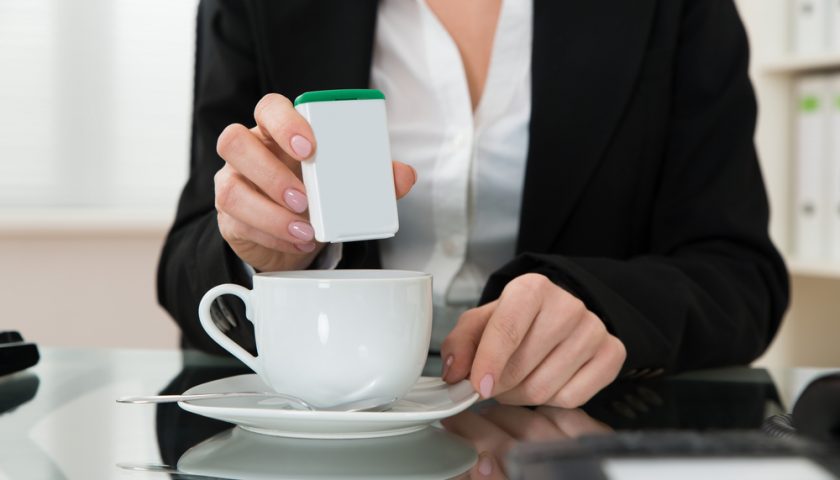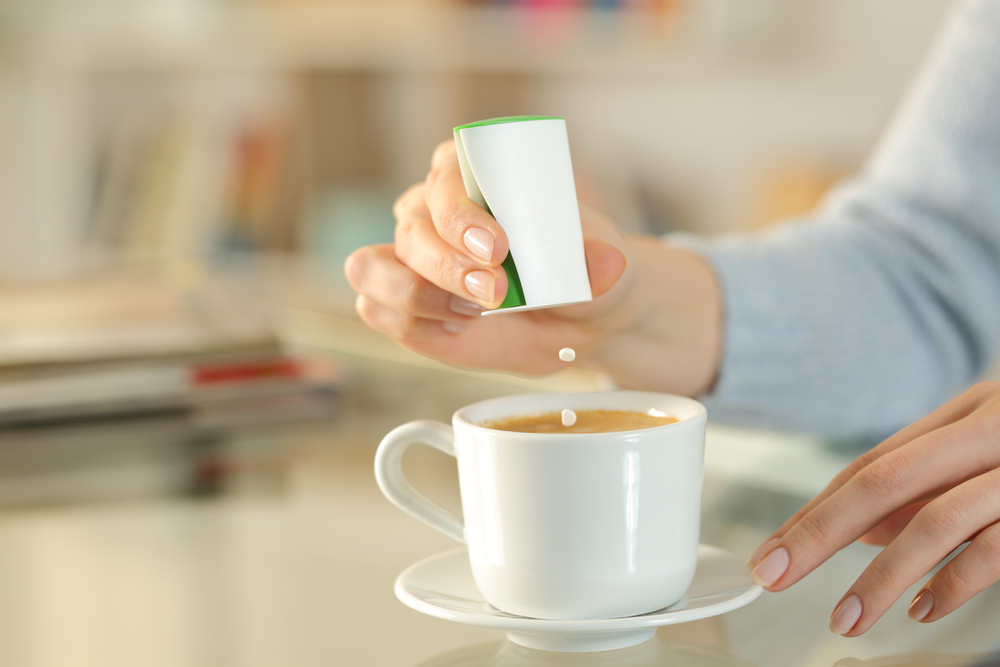Artificial sweeteners are a hot issue of debate.
On one hand, they may raise cancer risk and impair blood sugar and gut health.
Most health authorities, on the other hand, consider them safe, and many individuals use them to cut down on sweets and lose weight.
What is the truth? Is fake sugar bad for you? What side effects of artificial sweeteners are there for your health?
We will answer all these questions in this article, but first, let’s get a background of artificial sweeteners.
Table of Contents
What are Artificial Sweeteners?
Artificial sweeteners, sometimes known as sugar substitutes, are substances that are used to sweeten meals and beverages.
They’re commonly referred to as “strong sweeteners” since they have a taste similar to table sugar but are thousands of times sweeter.
Although certain sweeteners contain calories, the amount required to sweeten items is so minimal that you consume virtually no calories. So, it is essentially a zero-calorie sweetener.
Artificial sweeteners are synthetic sugar substitutes. But they may be derived from naturally occurring substances, such as herbs or sugar itself.
Are There Any Natural Sweeteners?
Natural sweeteners are sugar replacements that are frequently marketed as being healthier than sugar or other sugar substitutes. Even “natural sweeteners” are subjected to processing and refining.

The FDA considers the following natural sweeteners to be generally safe:
- Fruit nectars and liquids
- Maple syrup
- Honey
- Molasses
What are the Uses of Artificial Sweeteners?
Artificial sweeteners can be found in a variety of processed foods, such as:
- Beverages such as soft drinks, powdered drink mixes
- Finished baked goodies
- Candy and puddings
- Foods in cans
- Jellies and jams
- Products derived from milk
Artificial sweeteners are also widely used at home. Some are even suitable for baking and frying.
According to the top reviewed diabetologists in Islamabad, Dr. Tauqeer Ahmed Malik “Artificial sweeteners, unlike sugar, do not contribute bulk or volume, thus certain recipes may need to be tweaked. Check the labels on artificial sweeteners to see if they’re safe to use at home.”
Some artificial sweeteners may leave a lingering taste in your mouth. A different artificial sweetener, or a mix of artificial sweeteners, might be more enticing.
Essential Question: Why Do Sweet Things Taste So Good?
The answer to why someone likes to say they have a ‘sweet tooth’ lies in the brain chemistry. Research shows that our need for energy is what drives our love of sweets. Our need for calories affects the way our brains work, too. Different parts of our brains get excited by sugar when we are hungry vs. when we are not.
Many products, including sports and energy drinks, sodas, chewing gum, some baked goods, and even ketchup, are sweetened with artificial sugars.
If we’re going to keep using artificial sweeteners, we need to understand how they influence our minds and bodies.
Brain Reactions to Real Vs. Artificial Sugars
| Real Sugars | Artificial Sweeteners |
| Reward pathways are a network of connections in the brain that deliver feel-good neurotransmitters like dopamine. They are like racetracks for neurons in our brains that, when stimulated, release chemicals that make us feel good (such as dopamine, a typical neurotransmitter). Consider how satisfying it is to eat when you’re hungry, or to enjoy ice cream or cookies as a dessert! Sugar triggers our reward circuits, which explains why we like the taste of it so much from a neurological standpoint.Read more about the side effects of white sugar. | Artificial sweeteners only activate reward pathways to a limited extent since they are sweet (which we like for pleasure) but lack the calories we require for energy. Artificial sweeteners can be potentially dangerous since they don’t fully activate reward pathways, which can induce us to overeat in order to feel fulfilled, or to seek even more sweetness later. People who consume artificial sweeteners experience less pleasure, which should reduce desire. However, they eat more and choose meals with a greater calorie count than people who consume nothing sweet or genuine sugar. |
So, we come to the conclusion that artificial sweeteners may pose side effects for you in the long run.
Artificial Sweeteners Side Effects: What Can You Encounter?
You may Develop a False Sense of Security
Artificial sweeteners’ side effects include giving people a false sense of security regarding their daily sugar intake, leading them to overeat fattening items like pastries and chocolate.
You may Find Yourself Addicted to Sweets
Artificial sweeteners have a stronger flavor than sugar, so they may overstimulate your sugar receptors and reduce your desire for healthier meals like vegetables if you consume them frequently.
You may Gain Weight
People who consume artificial sweeteners on a regular basis gain weight because they have greater sweet tooth desires and eat unhealthy foods as a result.
Read more about weight loss exercises.
You May Not be Able to Give Up
You might not be able to give up artificial sweeteners as quickly as you believe when you first start, because of their addictive nature.
You may Develop Gut Issues
Artificial sweeteners affect the normal gut microbiota. This can lead to obesity and metabolic syndrome.
Moderation is the Key!!!
It pays to be a knowledgeable buyer when it comes to sugar replacements. Weight loss can be aided by artificial sweeteners and sugar alternatives. However, they aren’t a panacea and should only be used in moderation. Artificial sweeteners’ side effects are not something you can overlook.
Sugar-free food isn’t calorie-free, thus it can still make you gain weight.
Remember that processed meals, which frequently contain sugar alternatives, don’t provide the same health benefits as whole foods like fruits and vegetables. If you have any queries regarding the use of artificial sweeteners in your diet, make sure to consult a well-known nutritionist before making any choices. Book an appointment via Healthwire.pk or call at (042) 32500989.
